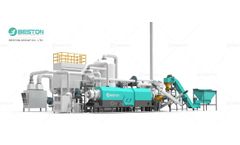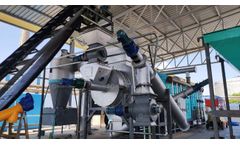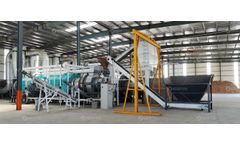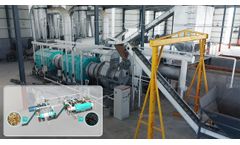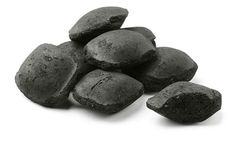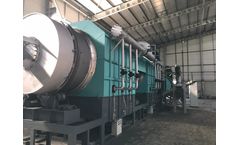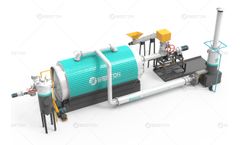Crop Yield Articles & Analysis
71 articles found
This enables users to: Run pilot projects. Collect data on biochar yield. Test feedstock performance. Build proof-of-concept results before scaling up. 2. ...
Biochar can be used as an efficient soil conditioner in agricultural production to improve soil fertility and crop yield; it can also be used as a high-quality fuel in industrial boilers and civil heating. ...
Modern pyrolysis systems are designed to maximize the yield of biochar while minimizing energy consumption and emissions. Continuous pyrolysis reactors, for example, allow for more efficient processing of coconut shells and higher output, which increases the potential for profit.Advanced systems may also incorporate features like heat recovery, which helps reduce the amount of ...
By improving soil structure, water retention, and nutrient availability, biochar contributes to better crop yields. As a result, biochar can be sold to farmers looking to enhance their soil’s fertility. ...
When applied to soil, it enhances the soil’s structure, promotes microbial activity, and increases nutrient retention, leading to better crop yields. In addition to these benefits, biochar produced from manure-contaminated biomass litter can help mitigate the negative effects of excessive manure application. ...
Burning removes vital nutrients, such as nitrogen, phosphorus, and potassium, which are essential for crop growth. The loss of these nutrients can lead to reduced agricultural productivity, necessitating the use of synthetic fertilizers, which further contribute to environmental harm. ...
These benefits lead to improved crop yields, reduced water usage, and a decreased need for chemical fertilizers. For farmers, this translates into cost savings on fertilizers and water, as well as increased income from higher yields. Moreover, the enhanced soil structure provided by biochar can help prevent soil erosion and improve land ...
The mineral-rich charcoal can improve soil fertility, promoting sustainable agricultural practices and enhancing crop yields. https://www.bestongroup.com/palm-kernel-shell-charcoal-machine/ Palm kernel shells are an invaluable component in charcoal production, thanks to their unique composition and multiple benefits. ...
The resulting material has numerous applications, particularly in agriculture, where it is used to improve soil fertility, increase moisture retention, and enhance crop yields. 2. Environmental Benefits of Biochar Carbon Sequestration: Biochar acts as a long-term carbon storage solution. ...
During this process, the organic material in the husks is decomposed, yielding biochar, syngas, and volatile liquids. The biochar, a stable form of carbon, can be used to enhance soil properties and contribute to sustainable agricultural practices. ...
Moreover, biochar enhances soil fertility and water retention, promoting sustainable agriculture. By improving crop yields, it reduces the need for chemical fertilizers, which are associated with high greenhouse gas emissions during their production and application. ...
This practice reduces soil fertility, negatively impacting crop yields and agricultural sustainability. The loss of soil structure also increases the risk of erosion, further diminishing the land's productivity. ...
Moreover, the application of biochar to agricultural lands enhances soil health by improving its structure, nutrient availability, and moisture retention. This leads to increased crop yields and resilience against extreme weather conditions, which are becoming increasingly common due to climate change. ...
By converting agricultural residues, crop wastes, and organic matter into biochar, farmers can enrich soil quality, improve crop yields, and reduce dependence on chemical fertilizers. ...
The utilization of jute sticks for charcoal production has gained traction in recent years due to its numerous advantages. Leveraging innovative jute stick charcoal machines, producers can transform this abundant agricultural residue into a valuable resource with diverse applications. This article delves into the myriad benefits of making charcoal from jute stick, shedding light on its ...
By doing so, it becomes possible to effectively improve crop yield per acre and increase agricultural income. What do soil sensors measure? ...
Correctly interpreting soil sensor readings is critical to optimizing crop growth and yield while reducing inputs and environmental impacts.Learn about soil sensor readings:The first step is to understand the specific parameters that the sensor measures. ...
ByJXCT
Biochar, in essence, is charcoal produced from organic materials—typically biomass like wood, crop residues, or manure—under limited oxygen conditions. This remarkable substance, when introduced into the soil, serves as a soil conditioner, fostering improved water retention, enhanced nutrient availability, and boosting crop yields. ...
Biochar's ability to reduce nutrient leaching promotes sustainable farming practices and can even lead to increased crop yields.The Biochar Production ProcessBefore biochar can work its magic in soil remediation, it must first undergo a meticulous production process. ...
Biochar, a valuable byproduct of burning organic materials like crop residue or manure in a low-oxygen, low-temperature environment, is proving to be a game-changer in agriculture. It serves as an excellent soil amendment, enhancing soil quality and boosting crop yields. Furthermore, this process not only yields biochar but also ...

